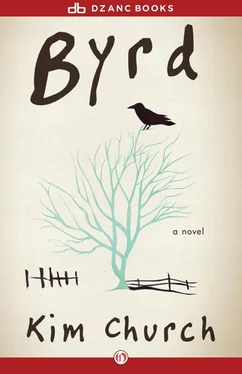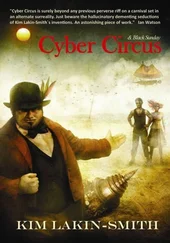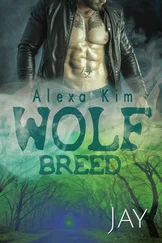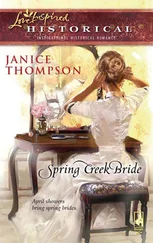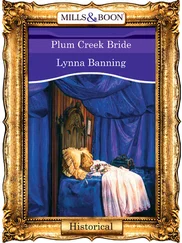Addie studies the charts. “One night he played in a bar,” she says, delicately lifting her teacup from its saucer. “I was at a table with his friends and they were telling me how he was the most natural, open, out-there person they’d ever met, and I wanted to say to them, Really? How do you know? Because I’m never sure what he’s thinking.”
“His friends have a different configuration with him than you do. They experience him on a more surface level. On that level he’s very direct. But you have a deeper connection, more of a soul-mate connection. Soulful playmates.”
“He’s been calling me. He forgets the time difference and calls in the middle of the night, when I’m asleep. We don’t always talk. Sometimes he just plays his guitar and I listen. He’s amazing, even when he’s wasted.”
“He affects people in powerful ways,” Warren says, “though he may not realize it. His Gemini energy makes him so scattered that he’s a bit of a mystery even to himself. Capricorn in his seventh house: he needs somebody solid, responsible. He doesn’t have much of that in his own life so he has to get it from somebody else.”
“Like me.”
“Your moon is falling in the fourth house, the house of security and family and rootedness, so yes, you’d be providing that part of the relationship.”
“While he’s off somewhere being mysterious.”
Her wistfulness makes him want to lay his hand on hers. But that would be a breach of ethics.
“You’ve got Libra on your seventh house cusp,” he continues. “Neptune’s there, too, which means you’re also a great romantic idealist. But you tend to delude yourself by projecting your ideals onto a particular person when in fact that idealism is something more magical about life itself. The more you tap the mystery in yourself, the less weightiness your relationships will have.”
He studies her for some sign that his reading is touching on the truth. Almost always, the answers people come to him for are truths they carry inside themselves. His job is to help them uncover what they already know. When a reading rings true, it registers visibly — a change in posture, a flicker in the eyes. Some people get hungry.
Addie is nodding. She has folded her arms across her waist and is rocking back and forth.
“Are you okay?” Warren asks.
“I’m sorry,” she says. “I’m feeling a little sick. I think I need your bathroom.”
Roland is making a picnic. He has never made a picnic for anyone. It’s not even a word he uses: picnic .
On his counter, blueberry smoothies and crinkle-cut fries from his favorite stand on the beach, plus everything from his kitchen: a can of peaches, half a bottle of white Zinfandel, and two hard-boiled eggs, which he peels and mashes into a bowl with salt and pepper. Then there’s the barbecue Addie brought with her from North Carolina: hickory-smoked shoulder meat sliced thin, packed on dry ice in her little travel cooler. Slaw, too, and sauce, the thin red tomatoey kind they grew up on. You can’t get sauce like this in California.
So much food. A feast, a corn-you-fucking-copia. That’s how Addie makes him feel. Rich, generous, overflowing. Like that Bible story where all of a sudden there’s plenty of fish and bread to go around. One day he’s racking his brain over how to scrape up rent, even thinking he should move Elle back in, the next he’s making a picnic.
Loaves and fishes, baby.
It’s a warm, gusty February afternoon and they’re going to spend it on the roof because Addie has never eaten on a roof. They’re going to sit in the sun and eat their picnic and drink their wine and look down on the ocean. When the time comes he will kiss her. She likes being kissed, gives him her mouth full and open, like a flower, one he remembers from home but can’t remember the name of. Something with soft, damp petals.
She’s swishing around him like a nervous cat, singing that song, “Up on the Roof,” by James Taylor or Joni Mitchell or Carole King, one of the people she listens to. He should learn the song so that next time, if there is a next time, he can play it for her the way it ought to sound, jazzy and light — the way you feel when you’re on a roof.
He packs the food in his gym bag, the peaches and eggs and smoothies and fries and wine and barbecue. He strips the orange blanket off the sofa bed. Then they climb out the window and up the metal ladder, past the fourth floor — only one flight, but in the wind, carrying their picnic, it feels like more. An outing , his mother would call it. Addie goes first, clinging to the rail. A warm breeze is blowing. Her cotton skirt balloons above him; he can see her legs all the way up to her lace panties. Her legs are like stalks, thin and straight and pale. No one in L.A. has legs so pale.
“Roland,” she says, her red hair whipping around her head, “if I let go, will you catch me?”
“Sure, baby.”
He isn’t in love with her. Nobody’s talking about love. But if she fell, yes, he would catch her, because she believes he could. She has known him forever and trusts him anyway, and for that he would give her everything. His groceries, his coke if he had any, his roof, his big warm California sky, his ocean.
The picnic does not turn out as he’s planned.
Addie sits stiff as a queen on the orange blanket, nibbling at her sandwich, now and then flapping her hand in the air to shoo a swooping gull. If she’d just finish eating, the bird would leave her alone. He doesn’t know why she’s taking such tiny bites, why she chews and chews and chews, unless it’s to avoid talking. She’s too quiet, not her usual chatterbox self.
He tries pouring wine into her cup and she stops him.
“What are those mountains?” she asks.
“The Santa Monicas.”
“They look like elephants.”
“Elephants?”
“It’s a Hemingway story,” she says. She sounds impatient, irritated with him. “‘Hills Like White Elephants.’ Except those hills aren’t white, they’re sort of brownish-gray. Taupe.”
“ I read a book,” he says. “I saw a show on public TV about John Steinbeck and the next day I went out and got Of Mice and Men . Fucking blew me away. I loved that guy Lenny.” What he doesn’t say, what he’s afraid to say, is that he watched the show and read the book for her .
“The one you ought to read,” she says, “is The Grapes of Wrath . The greatest road book ever written.”
“Isn’t it like ten thousand pages long?”
She squints at the horizon. “Those hills don’t really look like elephants.”
He opens the peaches and they eat them out of the can. “Last one’s yours,” he offers, but she pushes the spoon away.
“The Hemingway story,” she says, “is about a girl who gets pregnant. She and her boyfriend are trying to decide what she should do.”
“What do they decide?” He’s being polite. Why the hell is she still talking about this story?
“Nothing, Roland,” she says. “Nothing. I’m pregnant.”
“Oh,” he says. “Oh.” Fuck. Of course. A girl who gets pregnant . That explains everything — her nervousness, her moodiness. Her not-drinking. He can’t believe he didn’t figure it out himself. Even her coming back so soon. Of course she would think she had to tell him in person; that’s Addie. Dutiful, pale, pregnant Addie.
He imagines her packing for her trip. Choosing what to wear. Picking out the story she would use.
If only he were a reader.
She’s starting to cry now, but not hard. He puts his arm around her. “It’s okay, baby,” he says. “Don’t worry, it’ll be okay. Addie, look at me.” He hands her one of the paper towels they’re using as napkins. “That story,” he says, “how does it come out?”
Читать дальше
